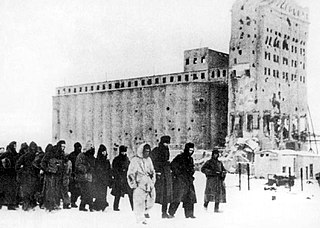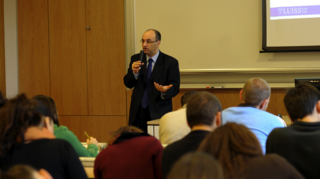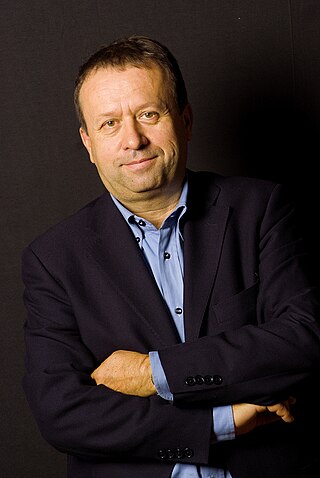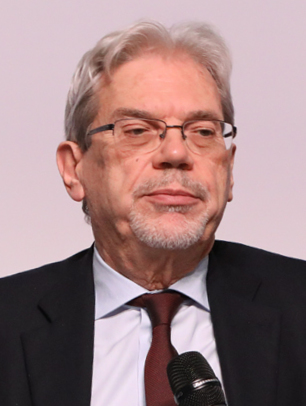
Paolo Emilio Taviani was an Italian political leader, economist, and historian of the career of Christopher Columbus. He was a partisan leader in Liguria, a Gold Medal of the Italian resistance movement, then a member of the Consulta and the Constituent Council, later of the Italian Parliament from 1948 until his death. Several times minister in the Republic’s governments. He was author of studies on economics and important works on Christopher Columbus, University professor and journalist.
Gianni Baget Bozzo was an Italian Catholic priest and politician.

Italian prisoners of war in the Soviet Union is the narrative of POWs from the Italian Army in Russia and of their fate in Stalin's Soviet Union during and after World War II.
Ludovico Geymonat was an Italian mathematician, philosopher and historian of science. As a philosopher, he mainly dealt with philosophy of science, epistemology and Marxist philosophy, in which he gave an original turn to dialectical materialism.

Gianfranco Pasquino is an Italian political scientist.

Alessandro Barbero is an Italian historian, novelist and essayist.

Michele Sorice is an Italian sociologist and political scientist known for his work in the fields of political communication, political science and critical media studies. He is the author of over 25 books and 50 articles.

Agostino Paravicini Bagliani is an Italian historian, specializing in the history of the papacy, cultural anthropology, and in the history of the body and the relationship between nature and society during the Middle Ages.

Massimo Montanari, currently Professor of Medieval History at Bologna University, is a scholar in Food studies. His interest in the subject stems from his researches and studies in Medieval Agrarian History. He has been invited as visiting professor to a number of leading universities in Europe, Japan, the United States, Mexico and Canada.
Luca Serianni was an Italian linguist and philologist.

Pietro Trifone, is an Italian linguist.

Luigi Berzano is an Italian sociologist and Catholic priest.

Gaetano Cozzi was an Italian historian, professor at Padua University, and researcher with the Giorgio Cini Foundation and Fondazione Benetton Studi e Ricerche. He was a specialist in Venetian history, with special attention to the institutions, the relationship between law and society and the cultural environment.
Filippo Carli was an Italian sociologist and fascist economist. After graduating in law in 1916, he was appointed as secretary of the Chamber of Commerce of Brescia. He retained this post until 1928 meanwhile studying sociology and economic history. He went on to teach at the universities of Cagliari and Pisa.

Claudio De Vincenti is an Italian politician, economist and university professor.
Lellia Cracco Ruggini was an Italian historian of Late Antiquity and professor emerita of the University of Turin. Her particular interests were in economic and social history, the history of ideas, and modern and ancient historiography. She specialized in the period from the second to seventh centuries AD.
Elena Brambilla was an Italian historian.

Chiara Frugoni was an Italian historian and academic, specialising in the Middle Ages and church history. She was awarded the Viareggio Prize in 1994 for her essay, Francesco e l'invenzione delle stimmate.
Simonetta Bernardi was an Italian historian and academic. She taught at the Sapienza University of Rome and at Roma Tre University.
Paolo Prodi was an Italian historian and politician.











